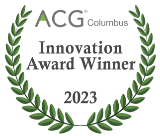Introduction
Mineral-rich water may seem harmless, but it can cause widespread damage inside your home’s plumbing. The chalky residue you see on faucets is just the tip of the iceberg. Hard water has high levels of calcium and magnesium that build up in your pipes and cause a decline in water flow, reduced appliance life, and unexpected repair costs. Over time, the damage gets worse and affects everything from water heaters to showerheads. Homeowners looking for long-term reliability must act before the mineral scale gets a grip. If left untreated, the impact can go beyond surface-level irritation, making plumbing in Columbus, OH, critical for long-term system health.
Hard Water Damage: A Threat to Your Plumbing
1. Mineral Scale Reduces Water Flow and Pipe Diameter
When hard water flows through pipes, it leaves behind calcium deposits that stick to the inside walls. Over months or years, these deposits harden and thicken and the pipe diameter shrinks. As the space gets smaller, water pressure drops in faucets, showers and appliances. It also increases the stress on plumbing joints and fixtures. This buildup leads to clogs and even pipe corrosion over time and disrupts the household water supply.
2. Appliance Lifespan Shortens Due to Residue
Hard water damages essential appliances like dishwashers, washing machines and water heaters by making them work harder. Mineral deposits line heating elements and internal components, reducing heat transfer and water efficiency. As the appliance struggles, energy consumption increases and wear accelerates. Over time, this shortens the life of the appliance and requires more frequent replacements. Maintenance becomes ineffective unless the hard water issue is addressed directly.
3. Water Heater Efficiency Plummets
One of the most affected components in any hard water environment is the water heater. As the scale settles at the bottom of the tank, heating elements have to burn longer to warm the same volume of water. This inefficiency increases energy bills and leads to overheating and premature breakdown. Tankless water heaters are also at risk as scale clogs flow sensors and heat exchangers. The result is unreliable hot water and high repair costs.
4. Faucet and Showerhead Blockages Are Common
Faucets and showerheads are on the front lines of mineral exposure. Scale deposits form visibly at the nozzles and restrict water flow and create irregular spray patterns. Over time, the buildup hardens and cleaning becomes impossible without special solutions. Eventually, full replacements may be required. This is especially inconvenient in homes where aesthetics and function matter and adds extra cost to regular maintenance.
5. Hard Water Affects Drainage and Waste Systems
The damage from hard water isn’t limited to supply lines—it can also affect drainage. Mineral-rich water reacts with soaps and detergents and forms soap scum that sticks to drains and traps. This creates blockages and promotes bacterial growth. In kitchen sinks, it mixes with grease and food waste and accelerates clogs. Toilets may develop stubborn rings and require more frequent cleanings, all of which is a sign of deeper systemic issues.
Hard water gradually wears down your entire plumbing system. From reduced water flow and inefficient appliances to damaged fixtures and clogged drains, the signs of wear and tear appear everywhere in your home. Early action can minimize future costs, especially if you live in a high mineral area. Regular inspections and timely intervention can keep damage in check. Knowing the signs of hard water damage allows you to protect your plumbing investment.
Conclusion
Are you looking for a reliable service company for sump pump repair in Chillicothe, OH? Look no further than our experts at Eco Plumbers, Electricians, and HVAC Technicians to protect your pipes. Call (855) 326-7586 today!
📌Plumbing, electrical, HVAC—Eco Service Center ensures your home stays comfortable, efficient, and worry-free every day.











